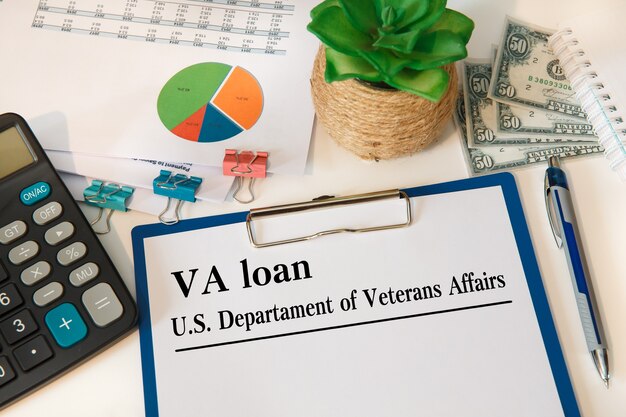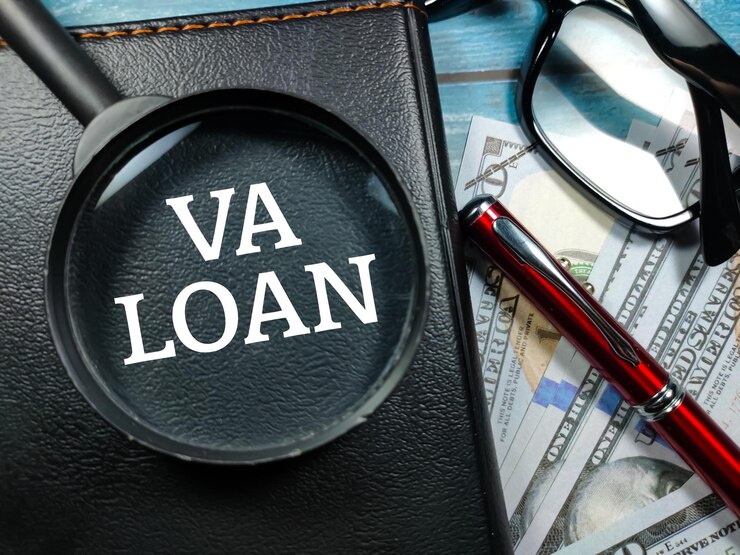Purchasing a dream home often feels like a Herculean task. However, for veterans and service members, there’s a silver lining in the form of a VA loan. While it’s an enticing option with numerous benefits, how does one navigate its intricacies? Let’s embark on a journey to understand the nuances of VA home loans and the steps to make your dream home a tangible reality.
1. A Glimpse into VA Home Loans: What Makes Them Unique?

At its core, a VA loan is a mortgage option provided by private lenders but backed by the U.S. Department of Veterans Affairs. Think of this loan as a trusty steed, specifically bred for veterans, aiding them in their quest for homeownership. What sets it apart is the absence of a down payment. Stay updated on VA home loan rates to confidently explore the housing market and secure competitive terms when purchasing your dream home as a veteran.
2. Qualifying for the Loan: Meeting the Service Criteria
The VA loan isn’t a one-size-fits-all proposition. It’s designed for a specific group: veterans, active-duty service members, National Guard members, and certain surviving spouses. Picture it as an exclusive club with specific entry criteria.
To fulfill the eligibility criteria, one must meet service length requirements. It generally ranges from 90 continuous days during wartime to one hundred and eighty-one days during peacetime. Even a service length of six years in the Reserves or National Guard can be good.
Knowing these prerequisites is the first step in the journey. SoFi experts say, “It is helping heroes find homes with VA home loans.”
3. The Financial Landscape: Navigating Credit Scores and Income

While VA loans are known for their leniency, it doesn’t imply a carte blanche approach. Lenders typically look for a credit score of 620 or higher, much like a filter ensuring the water (loan applicant) passing through is clean (financially sound).
Furthermore, lenders scrutinize the debt-to-income ratio, ensuring borrowers aren’t overextended. Envision it as a balance scale, weighing one’s debts against one’s income, aiming for equilibrium. Though each lender might have specific criteria, understanding these financial benchmarks ensures smoother sailing.
Related: 10 Crucial Points To Master The Art Of Securing A Home Renovation Loan
4. House Hunting: Finding the Perfect Abode
With the knowledge and potential loan assurance, the exciting phase begins: finding your dream home. VA loans are versatile, accommodating various property types, whether suburban houses, city condos, or rural homesteads. However, the chosen property must be the borrower’s primary residence.
Consider this as a quest, where you’re not just seeking a house but a haven. Collaborate with real estate agents familiar with VA loans, as their expertise can be invaluable in locating properties that meet VA guidelines.
5. The Final Stretch: Securing the Loan and Closing the Deal

Once the dream home is in sight, the culmination of the VA loan process begins. It starts with the property’s appraisal to ensure its value aligns with the loan amount. Picture this as a final quality check, ensuring your chosen home is a worthy investment.
Following this, all required documents are gathered, including income statements, service proof, and property details. The lender then reviews these details, and if all sails smoothly, loan approval is granted. The last step is closing the deal, where you officially secure your dream home, fulfilling the quest.
Conclusion
VA loans are more than just financial instruments; they’re a token of gratitude, a bridge connecting veterans to their dream homes. As a part of the service, the members or veterans, when you envision the future, can you see your dream home on the horizon? If yes, perhaps the VA loan is the compass guiding you toward it. Happy house hunting!
Read Also:























